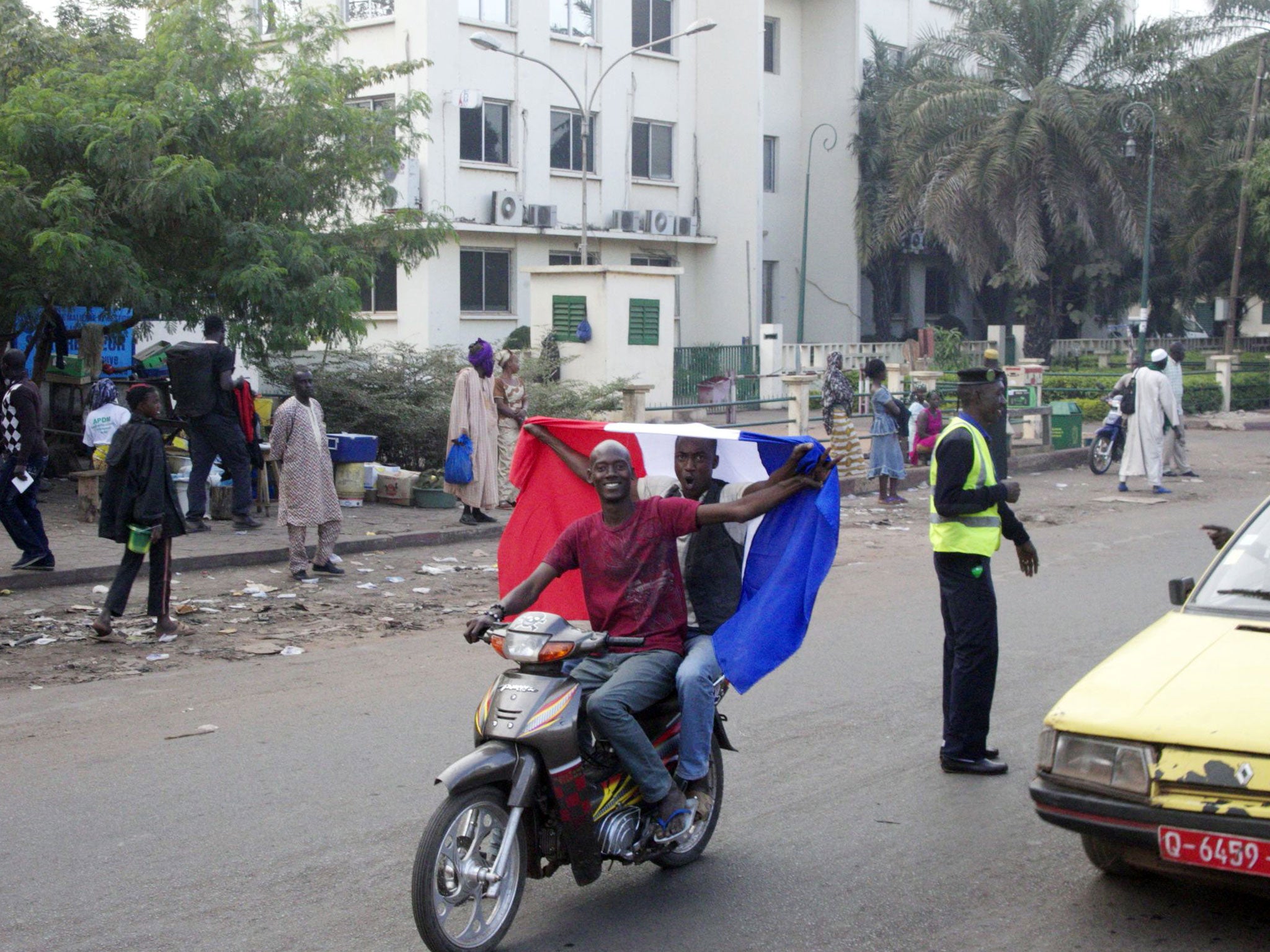It is vital to step in now and stop the deadly march of these extremist militias in Mali
If Mopti fell, it would plunge 120,000 into the arms of the Islamists, with their segregation of sexes, banning of music and brutal interpretations of sharia


Your support helps us to tell the story
From reproductive rights to climate change to Big Tech, The Independent is on the ground when the story is developing. Whether it's investigating the financials of Elon Musk's pro-Trump PAC or producing our latest documentary, 'The A Word', which shines a light on the American women fighting for reproductive rights, we know how important it is to parse out the facts from the messaging.
At such a critical moment in US history, we need reporters on the ground. Your donation allows us to keep sending journalists to speak to both sides of the story.
The Independent is trusted by Americans across the entire political spectrum. And unlike many other quality news outlets, we choose not to lock Americans out of our reporting and analysis with paywalls. We believe quality journalism should be available to everyone, paid for by those who can afford it.
Your support makes all the difference.For centuries, Mopti has been one of the most important cities in the Sahel, the trading post where the Saharan desert meets one of Africa’s great rivers. Salt-laden camel trains of nomads from the north unload their wares on to wooden pirogues, then replenish supplies at markets on the Niger shoreline.
Now this bustling city is on the frontline of a struggle between the past and the future, between extremist militias who want to impose their distorted and destructive vision of Islam on a people that want no part in their brutal nightmare.
The French sent their forces into action to protect Mopti, Mali’s second city and the most important northern point still in state hands. For days, there had been conflicting reports of fresh fighting between Islamists driving south and the Malian army. Konna, the town at the centre of events, lies just one hour north.
If Mopti fell, it would plunge 120,000 more people into the arms of the Islamists, with their segregation of sexes, banning of music and brutal interpretations of sharia – all so alien to most Malians. It could also have led to the collapse of the nation, still coming to terms with the traumatic and unexpected events of last year after a coup ended two decades of progress. The world has been slow to grasp the significance of Mali. Although al-Qa’ida has long wanted an African outpost, this is not a simple story of bin Laden’s legacy. Nor is it, as some claim, an inevitable by-product of Gaddafi’s downfall in Libya, which led to the return of well-armed Tuareg troops.
Instead it is a complex stew of local, regional, personal and tribal grudges, some dating back decades, then inflamed by profits from drug-running, gangsterism and the kidnapping of tourists. Economic deprivation and pressures of social change drove moderates to back the Islamists. Trying to understand the shifting alliances amid what one commentator calls “the sandstorm of war” is now near-impossible.
The French had little option but to act – even though only last month, asked about intervention in the strife-torn Central African Republic, President François Hollande replied: “Those days are over”. The militias were on the move – and there could be no waiting for the planned UN-backed autumn riposte, supposedly led by the corrupt and incompetent Malian army.
So why does it matter? First, because Mali is an important regional player whose people want no truck with the extremist thugs who have inflicted hardship and tragedy on the nation’s huge Saharan region.
Second, because it is a country with close links to Europe – especially France, which has a large Malian community; this gives rise to obvious and justified concerns about increased risks of terrorism in the West. And third, because this has already become a proxy war. Islamists and militias from neigbouring countries such as Benin and Nigeria have poured in, alongside fanatics from as far afield as Pakistan. There are strong suspicions countries such as Algeria, Qatar and Saudi Arabia are surreptitiously involved; Malians say that in occupied towns generous regular stipends are given to men siding with the Islamists.
This unwanted conflict could rip apart the Sahel region, endanger global security and lead to even greater poverty for millions of innocent people. Even as French aircraft begin bombing Gao, it will be a huge challenge to recapture the desert region from battle-hardened troops. Regardless, it is vital to stop the deadly cancer of Islamist extremism spreading further south.
Join our commenting forum
Join thought-provoking conversations, follow other Independent readers and see their replies
Comments